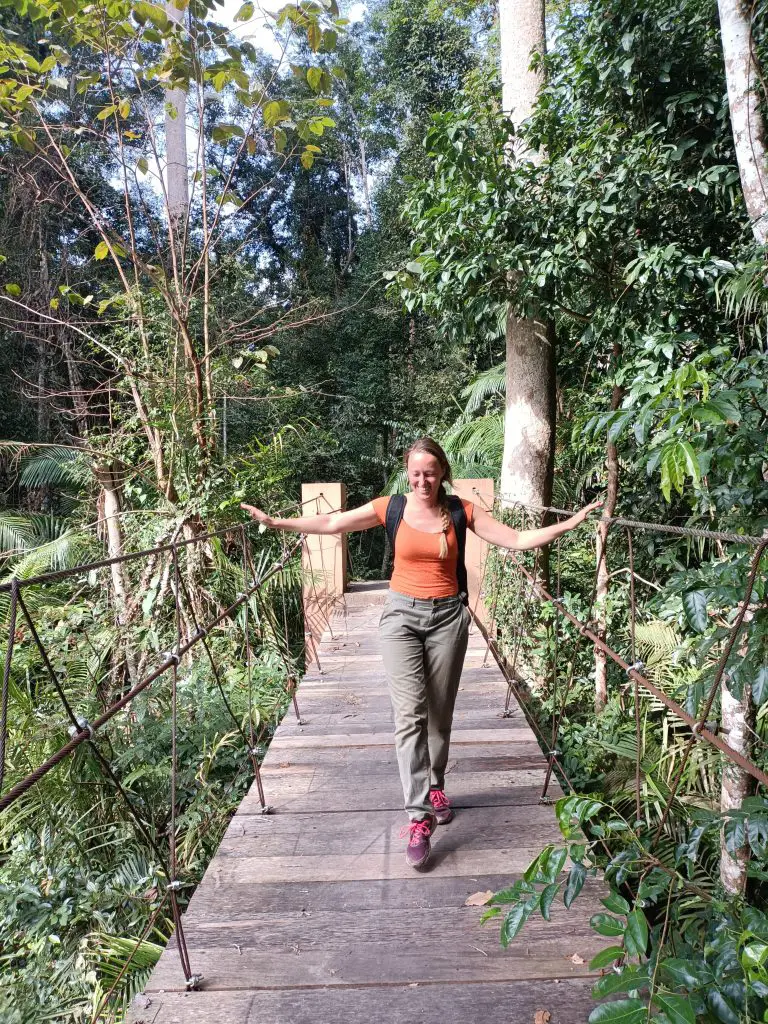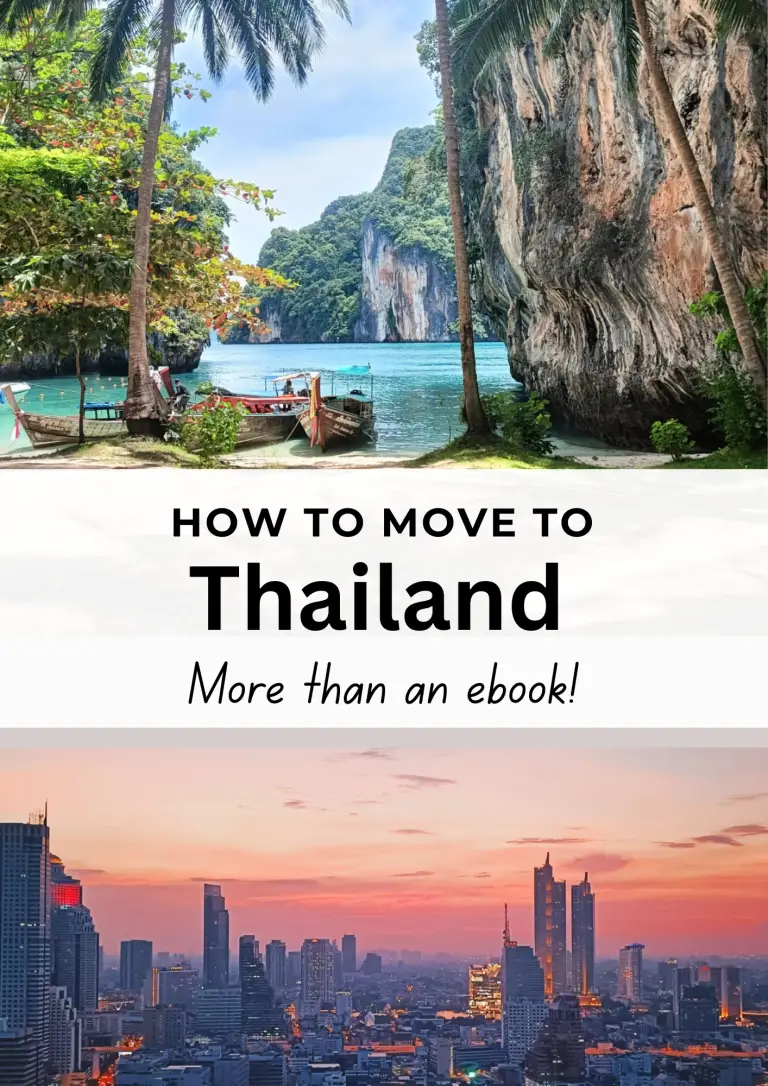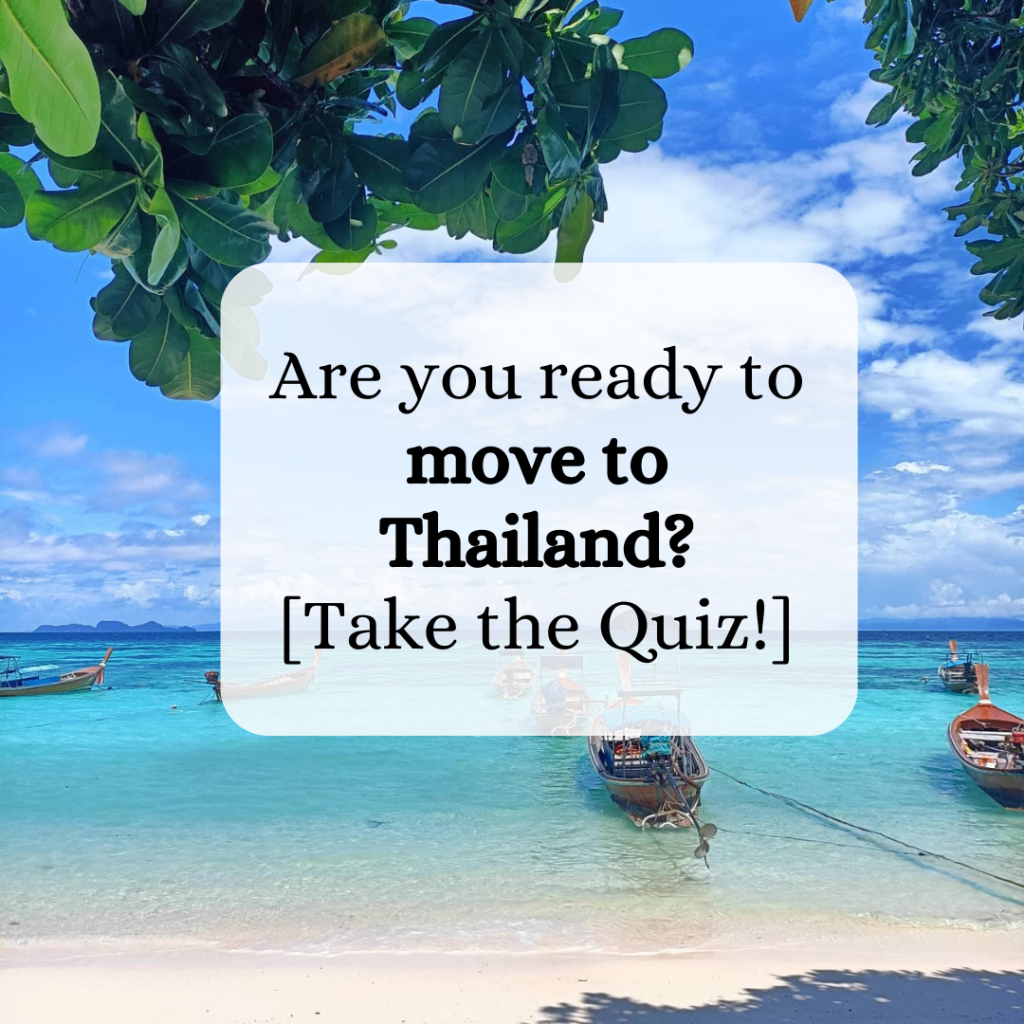Types of Schools to Teach at in Thailand: How to Pick the Best One!
Please note: this Asia travel blog uses affiliate links. If you click on a link and make a purchase or a booking I may receive a small commission at no extra cost to you. Please see my ethical publishing statement and my full affiliate disclosure.
Teaching in Thailand: there are so many myths. You can’t earn decent money. It’s just for gap year kids. It’s confusing and overwhelming and you don’t want to end up miserable at the wrong school.
After 8 years of teaching in Thailand, I’ve found there are 4 main types of schools you can teach at and specific reasons why each one might be the right fit for you.
| Thai Government Schools | Private Thai Schools |
| Language Schools (past me, 3.5 years) | International Schools (me now, 4+ years) |
I’ve worked for 2 different types and I have good friends who have experience of working at all the types of schools in Thailand. If you’re wondering about English teaching jobs in Thailand, this is the breakdown of:
- Honest Pros and Cons based on my experience and teacher friends
- What you will need to work there
- How to choose the BEST school for you

Why the right type of school matters?
Even if you love teaching, being in a school that aligns with your values is important. I’ve taught previously (outside of Thailand) and really didn’t enjoy the teaching because the school was unsupportive, the students undisciplined and work life balance was terrible. Where you teach and the expectations is essential for living the good life in Thailand!
1. Thai Government Schools in Thailand
Teaching at a Thai government school is one of the most culturally immersive ways to live and work in Thailand. These are public schools run by the Thai government who will employ foreigners as English teachers across Thailand.
I once had an interview at a government school where I would have been teaching 50 students per class. That’s pretty standard for this type of school. You’ll often find class sizes of 40 to 50 students, and it’s not unusual for teachers to use a microphone at the front of the classroom. It can take a while to get to know all your students by name and figure out how to manage the group effectively.
A good friend of mine actually got the job and she loves it! She thrives in the energy of big classrooms and enjoys the fast pace. If you’ve got lots of energy and patience, this could be a great fit. It’s also great for learning Thai and making local friends!
Pros:
- Full cultural immersion, from morning assemblies to school-wide celebrations
- Perfect for anyone wanting to learn Thai and be part of a local community
- Plenty of school holidays, especially around April for Songkran (Thai New Year)
- Daytime hours, usually Monday to Friday
Challenges:
- Large class sizes can be overwhelming at first
- Some schools don’t have air conditioning or much classroom tech
- Lower salary compared to other school types
- Teachers often need to wear a uniform
Salary Range:
Around 25,000 to 35,000 THB per month ($675–945 USD / £530–740 GBP). Some do go higher than this around 60,000 THB a month and it will depend if your school is in a rural area or in Bangkok. Some schools may offer housing support or a small bonus, but this is the typical range.
Best For:
- Teachers looking for deep cultural immersion and a more authentic Thai experience
- Anyone wanting to live outside tourist areas
- People with high energy who can handle large classrooms
- New teachers starting their career or those with a bachelor and a TEFL looking for experience
2. Thai Private Schools in Thailand
Thai private schools offer a bit more structure and support than government schools while still keeping a strong connection to Thai culture. These schools are run by private companies or foundations and often have better facilities and slightly smaller class sizes.
One of my best friends worked at a Thai private school and loved it for the environment. The school was surrounded by greenery even though it was in Bangkok. She even had regular visits from giant monitor lizards strolling across the playground.
One downside was that it didn’t have air conditioning, so March was pretty brutal and luckily April is the main long holiday for Thai schools as that is the hottest month!
These schools often have fewer foreign teachers, which is great if you’re looking to improve your Thai or make local friends. Some private schools follow a mix of Thai and Western calendars, so you may get April off and December for Christmas and New Year.
Pros:
- Great for cultural immersion
- Smaller class sizes compared to government schools
- Some may follow a hybrid academic calendar
- Could have an environmental ethos like the one my friend worked at
- Great for making Thai friends and learning the language
Challenges:
- Facilities vary a lot between schools
- Holiday schedule is less generous than government or international schools
- Air conditioning isn’t a given
Salary Range:
Around 50,000 to 70,000 THB per month ($1,350–1,900 USD / £1,050–1,500 GBP).
Best For:
- Teachers looking for a local experience with more support and higher salary
- Anyone wanting to make local friends and improve their Thai
- Those with a Bachelor and wanting to gain more experience

3. Language Schools in Thailand
Language schools are a great option if you want more flexibility or if you’re just starting out. These centres usually offer English classes to a mix of students such as adults, teens, and kids, outside of standard school hours. That means you’ll often be working evenings and weekends instead of the usual Monday to Friday setup.
This is why I moved to Thailand the first time. I worked at the British Council and used to teach a mix of primary, secondary, and adult students. It was a great place to work and I LOVED having an unusual teaching pattern I’d go for a swim in my condo pool in the morning and start teaching in the afternoon, which suited me perfectly because I didn’t have to set an alarm for 6 a.m. It also meant I could travel on weekends and find empty beaches in Thailand!
Language schools are ideal if you’ve done a CELTA or TESOL certificate. You don’t necessarily need a traditional school teaching license.
Pros:
- Flexible hours, especially for late risers
- Good option for CELTA holders
- Chance to teach adults and a range of age groups
- Often based in major cities like Bangkok and Chiang Mai
Challenges:
- Evening and weekend work is standard
- Shorter holiday breaks compared to international schools
- Can be a bit isolating socially if most of your friends work regular hours – luckily I always found friends with my days off!
Salary Range:
Around 40,000 to 65,000 THB per month ($1,080–1,750 USD / £850–1,350 GBP). Some roles offer end-of-contract bonuses and I used to get a bonus every Christmas which would pay for my flight home to the UK.
Best For:
- People who don’t want to wake up early
- Teachers who enjoy working with adults or want variety in age groups
- CELTA or TEFL-qualified teachers looking to build experience
- Anyone who wants to live in the city and enjoys flexible hours more than long holidays
4. International Schools in Thailand
International schools are often seen as the top of the teaching game in Thailand, and for good reason. They offer the highest salaries, long holidays, and the chance to work in well-resourced, modern environments.
But there is a big range within international schools. We (informally) use different tiers to talk about the different levels of international schools in Thailand.
I currently work at one of the top-tier international schools in Bangkok. It’s incredibly rewarding and since working here, I’ve also completed more qualifications, like QTS and the iPGCE, which the school supported me through.
These schools typically cater to both expat and Thai students and everything is taught in English. The diversity of nationalities is one of my favourite things about teaching there. In one class I have students from Thailand, South Korea, China, Turkey, Russia, Spain, the UK, France and more!
You’ll usually be following a UK/US/Australian school calendar, which means long breaks at Christmas and summer.
Pros:
- Highest salaries in the teaching sector in Thailand
- Strong benefits like private healthcare, annual flights, and professional development support
- Western academic calendar with long breaks
- Diverse student body – at my school we have over 65 nationalities!
Challenges:
- Highly competitive hiring process- I was in country and had to teach a demo class!
- Less day-to-day cultural immersion compared to local schools- more international focused!
- High expectations and workload, especially in top-tier institutions – some pressure from parents and leadership
Salary Range:
This one is difficult to answer because there is such a range.
Lower-tier schools: 60,000 to 90,000 THB per month ($1,600–2,400 USD / £1,250–1,850 GBP)
Top-tier schools: minimum 150,000 THB per month and up ($4,050+ USD / £3,200+ GBP) for fully qualified teachers
With additional responsibilities: Heads of department, coordinators, and senior leadership can earn significantly more
Top schools often include bonuses, housing allowances, end of contract or yearly flights home.
Best For:
- Qualified teachers with a degree in education and a teaching license from their home country
- Career teachers keen to develop in a supportive environment
- Teachers who want a stable, long-term role with great benefits
- Teachers who can work under pressure and high expectations
Hopefully all my advice will help you choose between these 4 so you can make the best decision for which Thailand schools to apply to!
How to Teach in Thailand
Want to know the best ways to apply for these jobs? More information about moving to Thailand? My American partner and I have written a no-nonsense Moving to Thailand guide which INCLUDES direct access to us (and all my schools wisdom!) and joining our private community.
Between Jason and I, we’ve lived here for over 10 years, been on 3 different visa types including a work permit AND experience of the digital nomad visa in case you were interested in online teaching and being remote worker in Thailand.
We’ve helped multiple teachers move to Thailand successfully! You can read their testimonials here
More Move to Thailand resources
You can find all my free resources here.
Reasons to move to Thailand (if you needed any more convincing!)
Are you planning to move to Thailand by yourself? I’ve done that twice!
What to think about before moving to Thailand to make sure you are fully prepared
What to pack when moving to Thailand – don’t forget important items!
If you are considering teaching in Thailand then here’s my daily life!
My Youtube account with videos on How to Move to Thailand (run by Jason, who moved to Thailand from the US)
We also have an Instagram account where we share videos of tips for moving to Thailand
Take our free quiz to find out if you are ready to move to Thailand!
Want to move to Thailand but not sure where to begin?
Our no-nonsense How to Move to Thailand Guide gives you everything you need to make the move with confidence. Inside, you’ll find clear instructions on choosing the right visa, applying, finding a job or remote work setup, and preparing for the move. It’s the guide we WISH we had when we moved to Thailand, written by a British teacher (Steffi) and an American digital nomad (Jason).
Whether you’re a teacher, digital nomad, or just ready for a change, this guide gives you the exact process we used ourselves. Every copy also includes lifetime access to our private community, where we personally help answer questions and support you along the way.
Stop guessing. Start your move to Thailand the right way.


